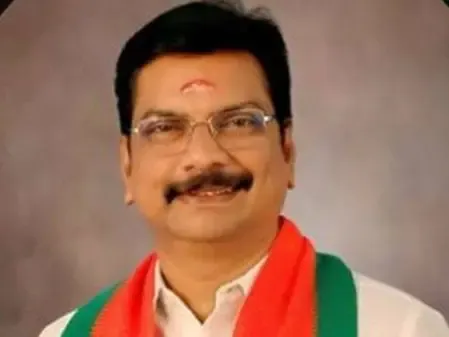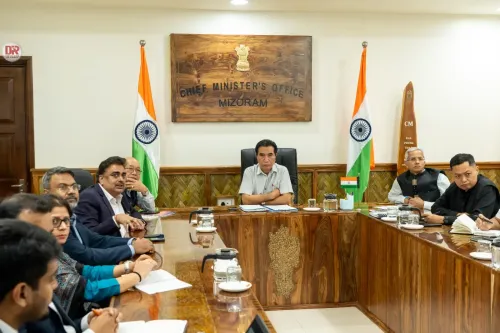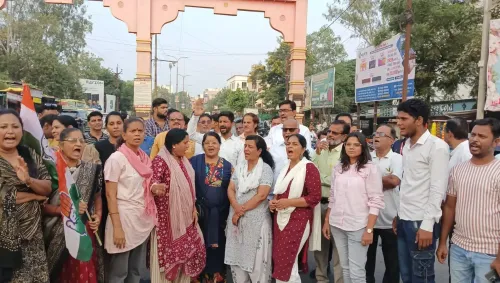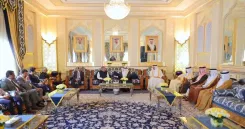Is the Tamil Nadu BJP Raising Concerns Over Misuse of Temple Funds?

Synopsis
Key Takeaways
- BJP demands transparency in temple fund management.
- Call for a white paper detailing assets under HR&CE.
- Concerns over educational funding using temple resources.
- Need for sustainable financial models for educational institutions.
- Emphasis on Hindu religious education in funded institutions.
Chennai, July 13 (NationPress) The Tamil Nadu branch of the Bharatiya Janata Party (BJP) has urged Chief Minister M.K. Stalin to publish a white paper outlining the lands and assets managed by the Hindu Religious and Charitable Endowments (HR&CE) Department.
In a statement made on Saturday, senior BJP leader and spokesperson ANS Prasad criticized the lack of transparency in the management of temple assets and insisted on immediate reforms to avert what he described as the "plunder of temple wealth."
This demand arises amid ongoing discussions regarding the state government's allocation of temple funds for the establishment of educational institutions.
BJP leader Prasad indicated that this situation underscores the DMK government's failure to clearly outline its policies concerning temple resources.
He referenced comments made by the Leader of the Opposition and former Chief Minister Edappadi K. Palaniswami, who questioned the justification for utilizing temple funds rather than government resources for constructing colleges.
"The question is straightforward and pertinent — why not allocate government funds for such infrastructure?" Prasad stated.
"Establishing schools and colleges necessitates not just initial investment but a sustainable financial model to cover ongoing expenses like salaries, maintenance, and utilities. Solely depending on temple funds without a long-term vision is not feasible."
The BJP spokesperson further criticized the DMK government for allegedly misrepresenting Palaniswami's position.
"Claiming he opposes educational advancement is a serious distortion. His concerns are centered on funding strategies, not on education itself," he remarked.
Emphasizing the extensive land and property holdings of temples under the HR&CE Department, Prasad noted that leasing or renting these assets at market rates could yield substantial revenue, which could then be allocated to education, healthcare, and other community services.
"Instead, the DMK government is utilizing temple properties for government offices without paying appropriate rent," he alleged.
He accused the state government of seeking short-term political advantages at the expense of long-term benefits for the Hindu community.
"A white paper would foster necessary transparency and accountability. It should detail all temple lands, outstanding rent dues, and the potential revenue from leasing at market rates," Prasad stated.
He also stressed that if temple funds are utilized for educational institutions, those institutions should incorporate Hindu religious education, including devotional hymns such as Thevaram, Thiruvasagam, and Divya Prabandham.
"This approach would meet the expectations of devotees and ensure that temple contributions are utilized in alignment with their spiritual objectives," he concluded.
Prasad urged the Tamil Nadu government to focus on effective asset management and revenue generation instead of politicized decisions, asserting that only a transparent and accountable policy will ensure that temple wealth genuinely benefits the community.









